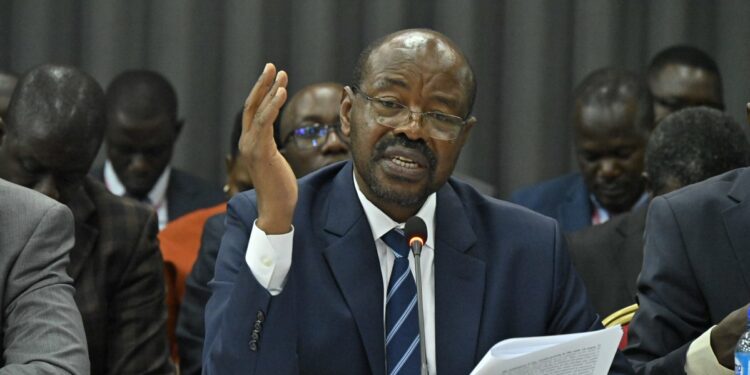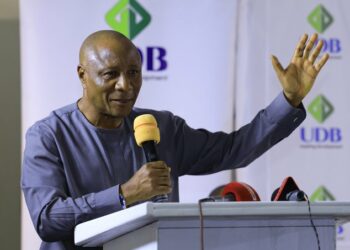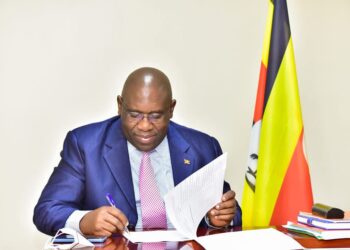The Minister of State for Planning Amos Lugoloobi has called on Members of Parliament (MPs) to support government proposals for land reforms enabling land acquisition in the public interest. Lugoloobi argues that the country is incurring massive costs on idle loans due to delays in land acquisition, often caused by lengthy court battles over compensation values.
The Minister made his remarks today while presenting the fourth National Development Plan (NDP IV) to Parliament’s Budget Committee. The NDP IV, which will guide Uganda’s development agenda between 2025 and 2030, envisions transformative projects, including plans to revitalize Kampala City as a logistical hub and address the capital’s persistent congestion, pollution, and petty crime challenges.
“The Kampala metropolitan area is going to be positioned as Uganda’s logistical hub, a catalyst, and springboard for increasing productivity in all aspects of the economy, including Foreign Direct Investments (FDI), tourism, efficient public services, and a highly improved quality of life. So you may see a different city,” said Lugoloobi.
The Minister emphasized the urgency of land reforms, citing their critical role in expediting infrastructure projects. “In constructing roads, we take considerable time to gain the right of way. It is a very serious problem that is delaying the implementation of projects. Consequently, we end up paying huge commitment fees on our loans simply because we can’t get this access,” he noted.
Lugoloobi highlighted the East African Crude Oil Pipeline project as a case in point. “While it was very easy to start construction in Tanzania when it came to the side of Uganda, it turned out to be a very big problem. These are the areas of improvement that we have proposed so that when we bring reforms to Parliament, you are ready to support them,” he added.
The Minister also pointed out that Uganda’s heavy reliance on road infrastructure which constitutes 90 percent of the transport network has led to inefficiencies.
“Only about 25 per cent of the roads are paved, leaving the majority of the network susceptible to wear and tear, especially during the rainy season. The limited capacity of roads to handle large traffic volumes exacerbates congestion, particularly in urban centers like Kampala, where delays significantly inflate transportation costs and reduce productivity,” he said.
He advocated for increased investment in rail, air, and water transport to diversify and enhance the country’s transport infrastructure.
Lugoloobi further underscored the need to revamp Kampala’s image as the face of Uganda, noting that its current state hinders the country’s marketability. “The Greater Kampala area remains unattractive and suffers from high congestion, long travel times, pollution, and petty crime. These issues affect the branding of Uganda, limiting our potential to attract investors and tourists,” he said.
The Minister’s appeal to MPs is expected to spark a robust debate on balancing constitutional rights with the nation’s development agenda. However, Lugoloobi insists that the proposed land reforms are essential to ensuring that Uganda’s ambitious development plans do not remain stalled by avoidable legal and bureaucratic hurdles.
“We need land reforms for the acquisition of the right of way in the public interest. This has continued to be a very big challenge. We have borrowed a lot of money, and although these loans are concessional, they have been delayed on our books. We keep revising maturity dates because of this problem,” Lugoloobi said.
Do you have a story in your community or an opinion to share with us: Email us at editorial@watchdoguganda.com













